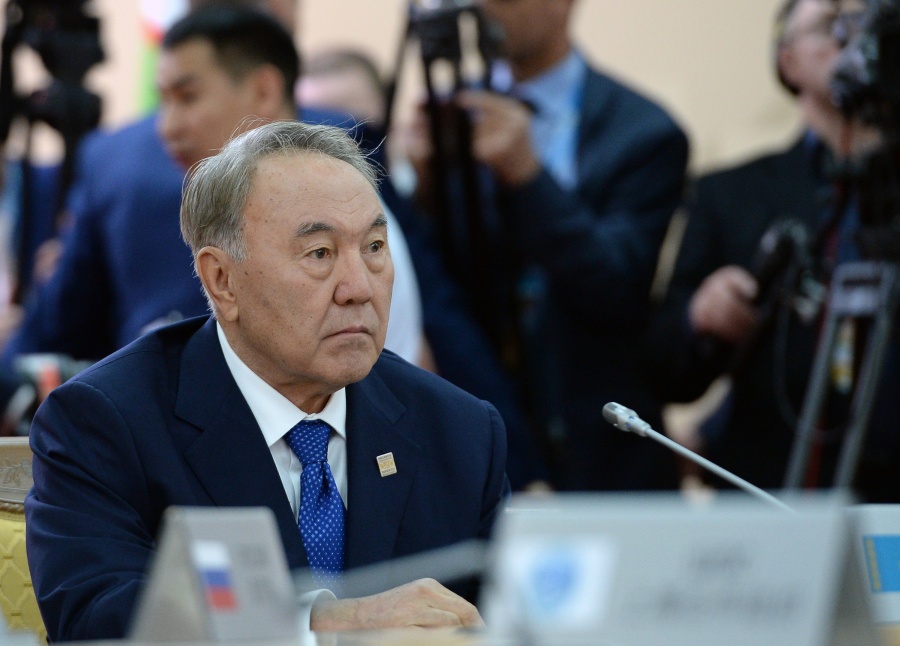After nearly three decades in power, Kazakhstan’s incumbent president Nursultan Nazarbayev may opt out of running for re-election in 2020, according to Kassym-Jomart Tokayev, the chairman of the Kazakhstani Senate and one of the most experienced politicians in the country.
“I don’t believe that President Nazarbayev will go to the presidential election in 2020, because he is a very wise man, and absolutely reasonable, and I think that in 2020 we shall have presidential elections with other candidates except for the acting president,” Tokayev said in an exclusive interview with BBC News on Wednesday, clarifying that he was airing his personal opinion only.
Nazarbayev, now age 77, has been in power since 1989 when he was named the First Secretary of the Kazakh Soviet Socialist Republic, a time when the country was part of the Soviet Union. Shortly before the USSR collapsed in late December 1991 and a free Kazakhstani state emerged, Kazakhstanis voted in their former Soviet leader during presidential elections.
Since 1991, Nazarbayev has been re-elected to the office four times: in 1999, 2005, 2011 and in 2015. In 1995, roughly 95 percent of registered voters took part in a referendum to ratify his proposal to skip the scheduled 1996 presidential election and allow him to remain in office until 2000. Seven years later, parliament passed legislation to remove term limits.
If Nazarbayev was to resign before the end of his current term is over in 2020, full powers pass to the chairman of the Senate, which is currently held by Tokayev. Tokayev has thus far denied the possibility of him running in two years.
But Dosym Satpayev, a political analyst and director of the Almaty-based Risk Assessment Group, believes that Tokayev’s statement is part of a deliberate effort aimed at creating a platform for the transition of power.
“The speaker of the Senate could not make such statements without coordinating it with the government,” he told Interfax-Kazakhstan on Thursday, adding that the transition of power is a very delicate topic in Kazakhstan.
Despite being aware of Nazarbayev’s old age, no one quite seems to know what will happen once he passes, or gives up the reigns.
“I think that around Nazarbayev there are enough politicians who can be trusted and who can successfully lead the republic in subsequent years,” Fikret Sadikhov, an Azerbaijani political analyst and professor at Western University in Baku, told Caspian News.
“These people are not just loyal to him, but they support his course for the country and are ready to take over when the time comes, to lead Kazakhstan along the path that brings the country into full integration into the world space.”
“Even if President Nazarbayev does not become the president of the country, he will be exercising a tremendous influence on the politics, either external politics or internal politics,” Tokayev said while talking to BBC.







 Azerbaijan and Armenia started the process of demarcation of their border on Tuesday, with the installation of the first border markers based on ge...
Azerbaijan and Armenia started the process of demarcation of their border on Tuesday, with the installation of the first border markers based on ge...
 President Aliyev emphasized the critical role of the North-South Transport Corridor in fostering transport cooperation between Azerbaijan and Russi...
President Aliyev emphasized the critical role of the North-South Transport Corridor in fostering transport cooperation between Azerbaijan and Russi...
 Armenian sappers commenced on Monday mine-clearance operations in the territories adjacent to the Saint Mary Church in village of Voskepar (Armenia...
Armenian sappers commenced on Monday mine-clearance operations in the territories adjacent to the Saint Mary Church in village of Voskepar (Armenia...
 Russian Foreign Minister Sergei Lavrov has reasserted that Moscow has no intentions to stop the fighting in Ukraine, even if peace talks commence.
Russian Foreign Minister Sergei Lavrov has reasserted that Moscow has no intentions to stop the fighting in Ukraine, even if peace talks commence.
 Iran has refuted reports of alleged damage to Shimon Peres Negev Nuclear Research Centre located southeast of Dimona, Israel, during the recent air...
Iran has refuted reports of alleged damage to Shimon Peres Negev Nuclear Research Centre located southeast of Dimona, Israel, during the recent air...
 Iran’s Foreign Minister, Hossein Amir-Abdollahian, has labeled a foiled Israeli drone attack in certain parts of the country as a "failure" for Isr...
Iran’s Foreign Minister, Hossein Amir-Abdollahian, has labeled a foiled Israeli drone attack in certain parts of the country as a "failure" for Isr...



